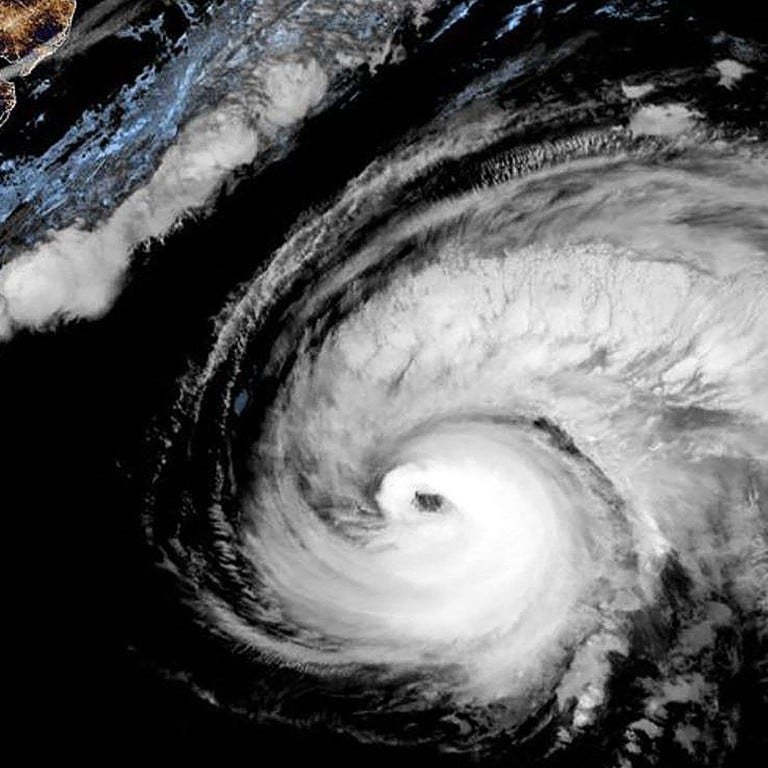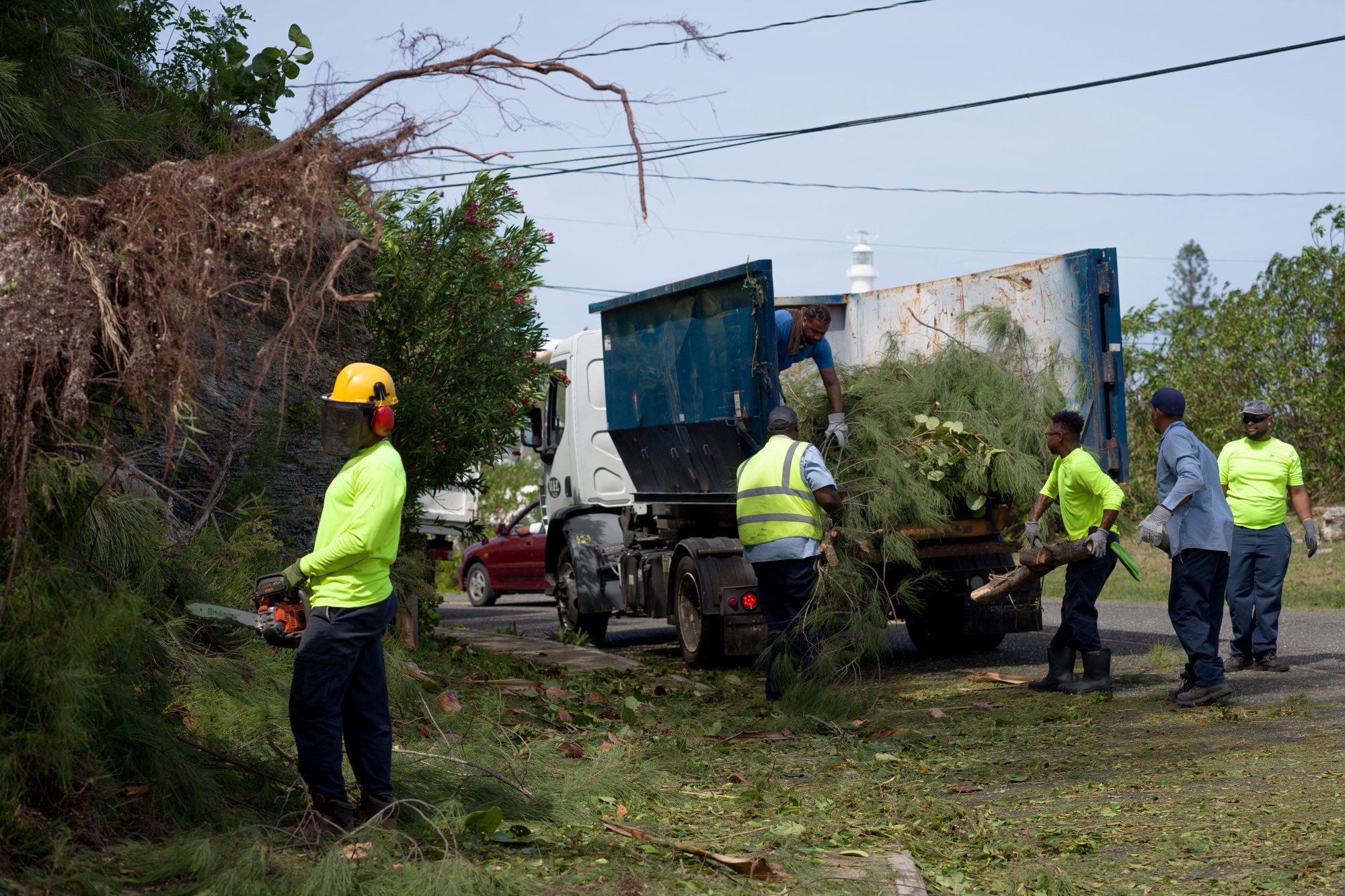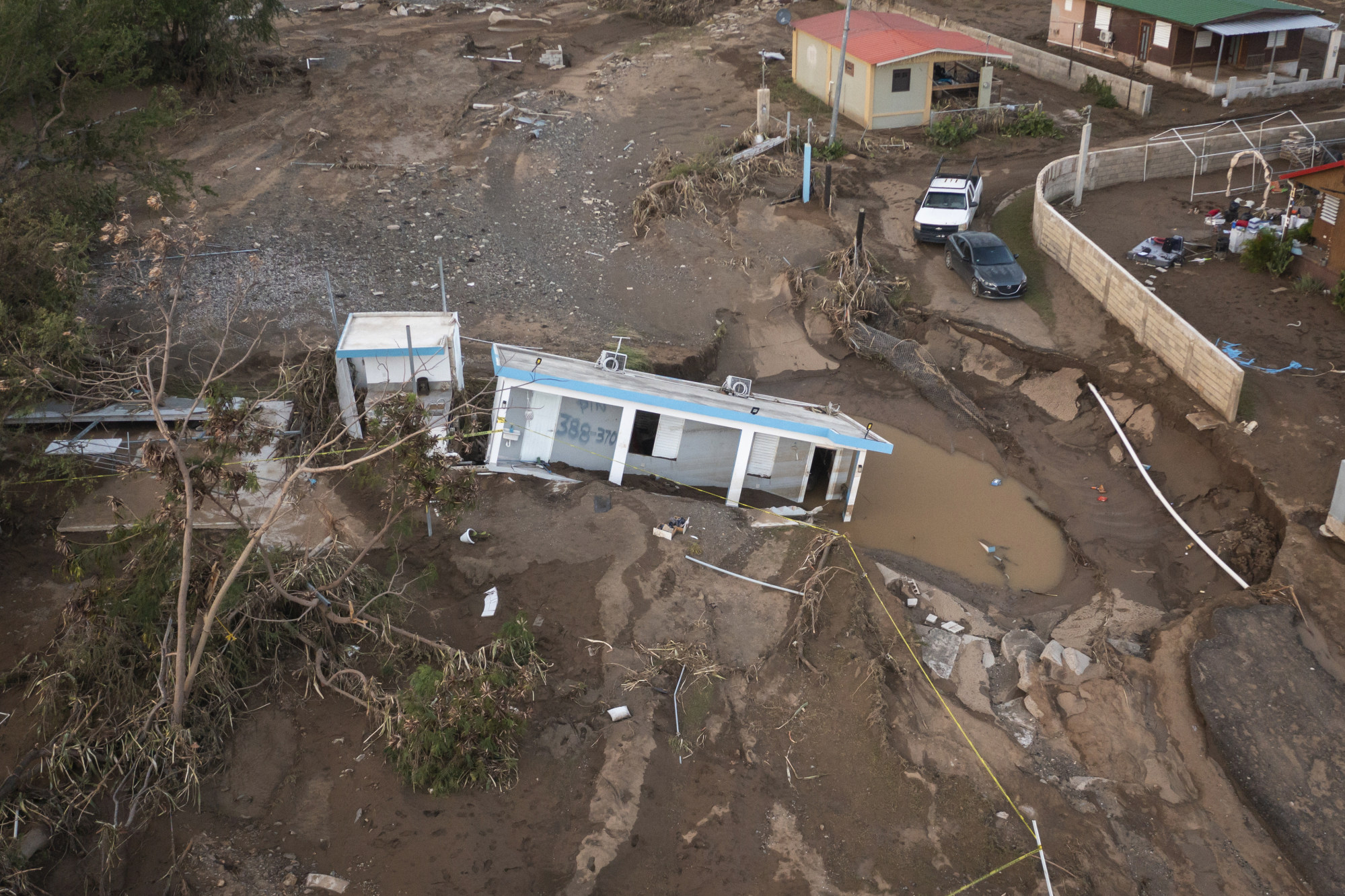
Hurricane Fiona: Canada braces for what could be one of worst storms in history
- The storm, which pounded Bermuda with heavy rains and winds, is expected to transform into a massive post-tropical cyclone
- Fiona so far has been blamed for at least 5 deaths – 2 in Puerto Rico, 2 in the Dominican Republic and 1 in the French island of Guadeloupe
A hurricane that is expected to transform into a massive post-tropical storm will bring hurricane-strength wind, heavy rain and large waves to Atlantic Canada in what meteorologists said Friday has the potential to be one of the most severe storms in the country’s history.
Fiona is due to make landfall Saturday morning. The Canadian Hurricane Centre issued a hurricane watch over extensive coastal expanses of Nova Scotia, Prince Edward Island and Newfoundland. The US National Hurricane Centre said Fiona should reach the area as a “large and powerful post-tropical cyclone with hurricane-force winds”.
“Where it fits in the history books we will have to make that determination after the fact, but it is certainly going to be a historic, extreme event for Eastern Canada,” said Bob Robichaud, Warning Preparedness Meteorologist for the Canadian Hurricane Centre.
Fiona, currently a category 4, pounded Bermuda with heavy rains and winds on Friday as it swept by the island on a route forecast to have it approaching northeastern Canada. Authorities in Bermuda opened shelters and closed schools and offices ahead of Fiona. Michael Weeks, the national security minister, said there had been no reports of major damage.

Robichaud said the centre of the storm is expected to arrive in Nova Scotia on Saturday morning sometime at just before 9am locally, but winds and rains will arrive late Friday.
“It certainly has the potential to be one of the most severe systems to have hit eastern Canada,” said Ian Hubbard, meteorologist for the Canadian Hurricane Centre in Dartmouth, Nova Scotia.
Authorities in Nova Scotia sent an emergency alert to phones warning of Fiona’s arrival and urging people to say inside, avoid coastlines, charge devices and have enough supplies for at least 72 hours. Officials warned of prolonged power outages, wind damage to trees and structures and coastal flooding and possible road washouts.
Hurricanes in Canada are somewhat rare, in part because once the storms reach colder waters, they lose their main source of energy. and become extratropical. But those cyclones still can have hurricane-strength winds, though with a cold instead of a warm core and no visible eye. Their shape can be different, too. They lose their symmetric form and can more resemble a comma.
Hurricane hits powerless Puerto Rico, ‘catastrophic’ damage reported
The US centre said Fiona had maximum sustained winds of 215km/h (130mph) on Friday. It was centred about 770km (475 miles) south of Halifax, Nova Scotia, heading northeast at 56km/h (35mph).
Hurricane-force winds extended outward up to 185km (115 miles) from the centre and tropical storm-force winds extended outward up to 555km (345 miles).
A hurricane warning was in effect for Nova Scotia from Hubbards to Brule; Prince Edward Island; Isle-de-la-Madeleine; and Newfoundland from Parson’s Pond to Francois. Fiona so far has been blamed for at least five deaths – two in Puerto Rico, two in the Dominican Republic and one in the French island of Guadeloupe.
People across Atlantic Canada were stocking up on last-minute essentials and storm-proofing their properties Friday ahead of the storm’s arrival.

Before reaching Bermuda, Fiona caused severe flooding and an island-wide blackout in Puerto Rico, leading US President Joe Biden to say Thursday that the full force of the federal government is ready to help the US territory recover.
Biden noted that hundreds of FEMA and other federal officials are already on the ground in Puerto Rico, where Fiona caused.
More than 60 per cent of power customers remained without energy on Thursday, though efforts to restore power were under way. Many customers were without water, while local officials said they could not say when service would be fully restored.
As of Friday, hundreds of people in Puerto Rico remained isolated by blocked roads five days after the hurricane ripped into the island.

